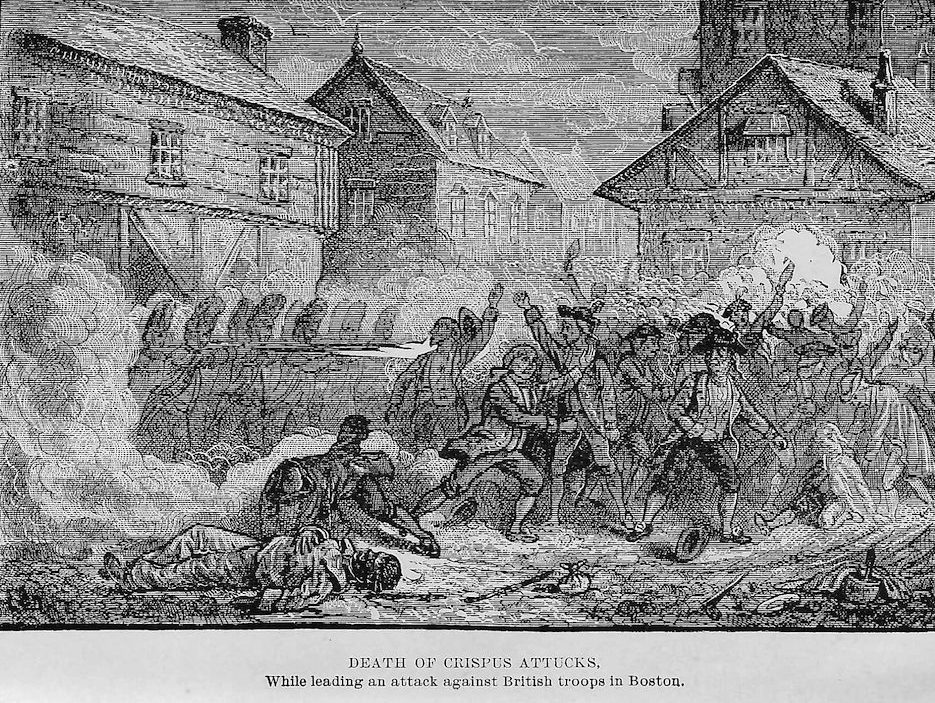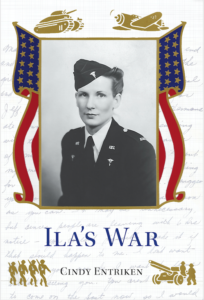Rough Draft of the Declaration of Independence in Thomas Jefferson’s handwriting1
This 4th of July I’ve been thinking about these words . . .
“We hold these truths to be self-evident, that all men are created equal . . .”
from the Declaration of Independence.
To me those words mean equality in life — with all the opportunities available to every American — and in death — with the recognition, remembrance, and respect of one’s ultimate sacrifice for the freedoms that the Declaration of Independence describes.
So this 4th of July . . .
I ask you to join me in remembering a brave man, a colonist, Crispus Attucks, a man of African American and Native descent, who was the first casualty of the Revolutionary War in the Boston Massacre on March 5, 1770.2
I won’t be surprised if you don’t know who Crispus Attucks was. The truth is I didn’t either, not until after I purchased and read an extraordinary book, The Black Phalanx3, about the lives and contributions of Black troops in the Revolutionary War, the War of 1812, and the Civil War.
The Black Phalanx was written by Joseph T. Wilson, a Black Civil War veteran who fought for the North. Wilson explained the purpose of his book in the opening lines of the Preface.
. . . [I]n the winter of 1882, . . . less than a hundred men, all of whom had served their country in crushing the great Rebellion of 1861 – ’65, gathered around a camp-fire. The white and the colored Americans were there, so were the German, Frenchman, and Irishman, — all American citizens, — all veterans of the last war. The empty sleeve, the absent leg, the sabred face, the bullet-scarred body of the many, told the story of the service they had seen. It was the annual Encampment of the Department of Virginia, Grand Army of the Republic, and the comrades of Farragut Post had tastefully arranged their quarters for the occasion.
At midnight a sumptuous soldiers (sic) fare — baked beans, hot coffee and hard tack — was spread before the veterans, who ate and drank heartily as in the days when resting from the pursuit of the enemy. In the morning hour . . . it was proposed that the history of the American negro soldier should be written, that posterity might have a fuller and more complete record of the deeds of the negro soldiers than had been given in the numerous already published histories of the conflicts in which they played so important a part.
Crispus Attucks, Revolutionary War Martyr
The story of Cripsus Attucks and his sacrifice is all the more moving because Attucks was a runaway slave who died fighting for the freedom of every colonist in the new world. Below is a description of what happened and a copy of an engraving from the book.4
Led by Crispus Attucks, the mulatto slave, and shouting, ‘The way to get rid of these soldiers is to attack the main guard; strike at the root; this is the nest;’ with more valor than discretion they rushed to King Street, [Boston] and were fired upon by Capt. Preston’s company. Crispus Attucks was the first to fall; he and Samuel Gray and Jonas Caldwell were killed on the spot. Samuel Maverick and Patrick Carr were mortally wounded. . . .

. . . on the 17th , a public funeral of the martyr took place. The shops in Boston were closed, and all the bells of Boston and the neighboring towns were rung. It is said that a greater number of persons assembled on this occasion, than ever before gathered on this continent for a similar purpose. The body of Crispus Attucks, the mulatto, had been place in Fanneil Hall with that of Caldwell; both being strangers in the city. Maverick was buried from his mother’s house in Union Street, and Gray, from his brother’s in Royal Exchange Lane. The four . . .victims were deposited in one grave; over which a stone was placed with the inscription:
‘Long as in Freedom’s cause the wise contend,
Dear to your country shall your fame extend;
While to the world the lettered stone shall tell
Where Caldwell, Attucks, Gray and Maverick fell.’
“The anniversary of this event was publicly commemorated in Boston by an oration and other exercised every year until our National Independence was achieved, when the Fourth of July was substituted for the Fifth of March, as the more proper day for a general celebration. . . .
The Takeaway
So as you enjoy your delicious barbeque, or make homemade ice cream, or watch spectacular fireworks – all commemorating America’s Independence from England, ask yourself this . . .
What else has been removed from the record of America’s history?
Telling the Whole History of this country
If the words of the Declaration of Independence are ever going to reflect the reality of life in these United States —
“We hold these truths to be self-evident, that all men are created equal, that they are endowed by their Creator with certain unalienable Rights, that among these are Life, Liberty and the pursuit of Happiness.”
we — all Americans — must demand history that tells the whole story, not just the whitewashed version.
_____________________
End Notes
1http://Thomas Jefferson, June , Rough Draft of the Declaration of Independence. -06, 1776. Manuscript/Mixed Material. https://www.loc.gov/item/mtjbib000156/. (accessed 7/4/21)
2https://en.wikipedia.org/wiki/Crispus_Attucks#Boston_Massacre (accessed 7/2/2021)
3Wilson, Joseph T. The Black Phalanx African American soldiers in the War of Independence, the War of 1812, and the Civil War. Hartford, Conn. American Publishing Company, 1890.
4Ibid, pp. 27 – 30.



Thank you, Cindy. I had no idea. I’m betting if I asked 100 people, none of them would know about The Black Phalanx or Crispus Attucks! Maybe if I asked 1,000 people…but I doubt it.
Good to have you out there writing these things down!
Pat, thanks for writing and for your supportive comment. It’s just my opinion but for all Americans to feel valued, the history we teach needs to reflect the contributions of diverse groups to America’s development. And that history also needs to tell the stories that show where American ideals and values were trampled by Americans – like the Tulsa Massacre, forced sterilization of minorities and poor women and many other atrocities. If we don’t learn from both our uplifting acts and our vile past, we risk repeating the most heinous of our mistakes. And we may be unable to replicate our best achievements to be our higher selves.
Next up maybe you can Blog about Frederick Douglas (all of his writings), George Washington Carver, or Booker T. Washington all of whom we learned of in history class. Remember, at least in High School history is required for only 2 years. one of which is World History. Therefore American History is limited to 180 days of 1 hour each. I believe the “Boston Massacre” was in our history book, just not the individuals. John Adams defended the British Soldiers tried and obtained mostly acquittals. Regarding Patriot Attucks – if you’ve ever visited Boston and trekked on the Freedom Trail you would know the name,
Mike, thank you for your thoughtful comments. I agree with everything you’ve written. I, too, recall my high school history class discussing the Boston Massacre, but not the individuals. Sadly, most of my high school history classes were devoted to memorizing dates with little emphasis on the contributions of individuals to the greater societal good. I would love to visit Boston and follow the Freedom Trail. I hope to do that one day. But you’ve raised an important point — there is so much rich history yet we know so little. I was just at Barnes and Noble earlier this afternoon looking at all the new books in the U. S. History section and thinking to myself, “So many books. So little time!” Thanks for writing.